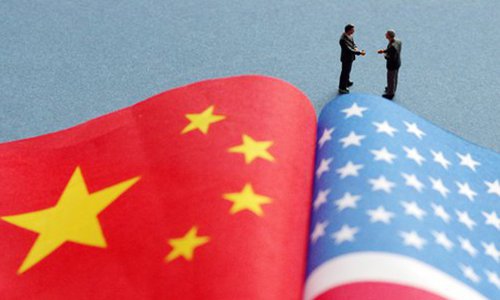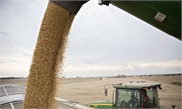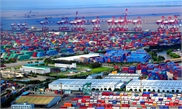
File photo
It is time for China and the US to acknowledge the impact of the deadly coronavirus outbreak on their bilateral trade, which is making the implementation of the phase one trade deal increasingly difficult. That would be the first step - which, unfortunately, hasn't been made yet - toward figuring out how to ride over their trade difficulties amid the COVID-19 epidemic.
After declaring a national emergency to combat the rapid spread of the coronavirus, US President Donald Trump said on Friday that under the trade deal, China is "going to be buying $250 billion worth of goods and $50 billion from our farmers. And that's a great deal for our country; it's about time somebody did that."
When the US economy is taking a hit from the COVID-19, it won't be easy for the Trump administration to give China some leeway in the phase one trade deal, even though the deal has a clause that both countries can consult in the case of an unforeseeable event. Any delay in China's plans to purchase goods from the US may seem unacceptable to Trump, who is probably hoping to use the Chinese purchases to score political points in the upcoming election.
Yet, the fact is that the virus may have hit the China-US trade far harder than the trade war, as reflected by the sharp fall in the recent bilateral trade. During the first two months of this year, China's trade with the US dropped 19.6 percent year-on-year amid disruptions caused by the outbreak.
What's worse, some US politicians are exploiting the virus crisis to seek further decoupling from the Chinese economy and to exert pressure on Chinese high-tech companies. Such a gambit is bound to make it harder for both countries to do business with each other.
Indeed, the coronavirus epidemic has disrupted China's economic activities, likely exerting pressure on its consumer spending in the months to come. However, the worldwide economic damage caused by the virus has called into question not just China's ability to buy, but the US' ability to supply. As the COVID-19 is still spreading fast in the US, it is uncertain how exactly the situation will develop in weeks. A growing number of plants and businesses have shuttered as the virus is taking its toll on the US economy. Even if China's purchasing power is intact, it is still a question whether the US could produce and supply as usual.
Thus, it is essential for China and the US to really face up to the economic impact of the virus. Only a candid attitude is the premise for both sides to coordinate on addressing the sharp drop in bilateral trade amid the epidemic.



